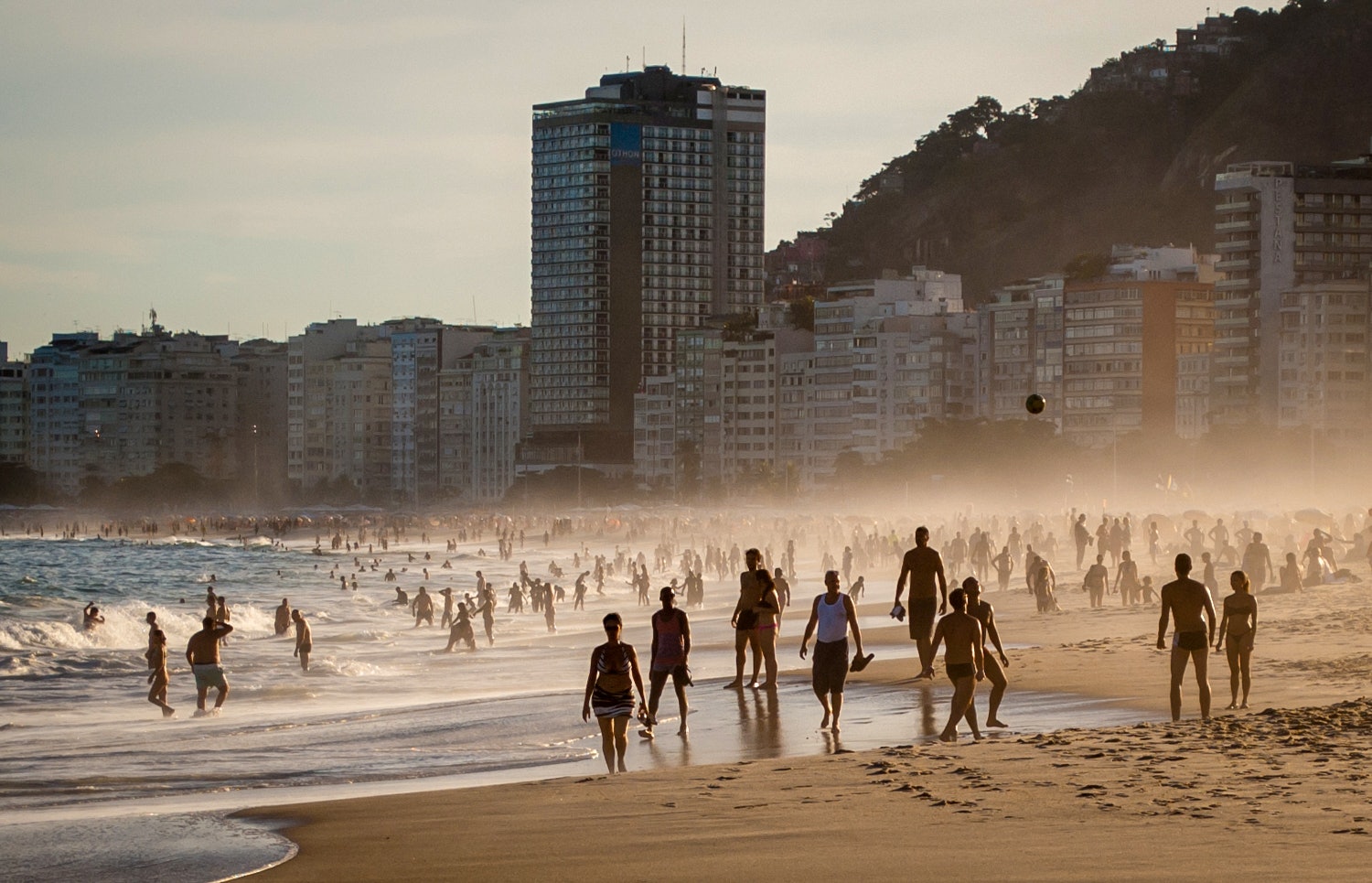
The 30 best countries, cities and regions to visit in 2025

It's a rare visitor who doesn't fall hard for the alluring beauty of Rio de Janeiro. Known as the cidade maravilhosa, the "marvelous city" stretches between rain-forest covered peaks and white-sand beaches, with a wild mix of architecture – from beaux-arts theaters to art deco apartment buildings – scattered along its buzzing tree-lined streets. Here are our top 10 places not to be missed while visiting the city.

For seaside strolls, it's hard to beat Copacabana, with its comely crescent-shaped beach that stretches for 4km against a backdrop of dramatic forest-covered peaks. Eating and drinking kiosks dot the shore – with kitchens cleverly hidden below ground – and make fine places to rehydrate while admiring the view.
The favored stomping ground for style-loving cariocas (Rio locals), Ipanema is blessed with a magnificent beach and leafy streets dotted with enticing outdoor cafes and restaurants, pricey boutiques and lively bars – it was here after all that Tom Jobim and Vinicius de Moraes penned their famous 'Garota de Ipanema' (Girl from Ipanema) in homage to the young beauty who passed by their bar stools each day.

Rio's commercial and financial hub has all the trappings of a bustling, modern city, but peer beneath the veneer of skyscrapers and traffic-clogged boulevards and you find the early roots of Rio. Places like the National History Museum, housed in the former 1764 arsenal, showcase the royal carriages and relics from imperial days. Other grand buildings around Centro attest to the wealth lavished on the former capital, from the gilded baroque splendor of the 17th-century Mosteiro de São Bento (one of Brazil's finest colonial churches) to the 1905 Theatro Municipal, inspired by the Paris Opera. Also worth visiting is the Paço Imperial which was the seat of power during the Portuguese reign in Rio. Today the restored building houses several restaurants and extensive art galleries, with changing exhibitions.

Set on a hill overlooking downtown and Guanabara Bay, Santa Teresa is a district of worn 19th-century mansions and bohemian cafes, where an old-fashioned tram still rattles along the cobblestone streets. Take in the fine views from the Parque das Ruinas, then stop in for potent caipirinhas and a filling pot of feijoada (pork and black bean stew) at Bar do Mineiro.
Lying at the foot of Santa Teresa, Lapa is a former red-light district that has been reborn as the samba capital of Brazil. Crumbling old theatres and taverns today house beautifully restored music-filled bars and dance halls, and weekends see crowds pack the streets until just before dawn. Current favorites to dance to that infectious Brazilian beat include antique-filled Rio Scenarium and Democraticus.

Lying just north of Ipanema and Leblon, the 'lake' is actually a saltwater lagoon and a favored destination for egrets as well as joggers and cyclists looping around the 7km-long shoreline path. In the evening, outdoor restaurants near the lake's edge make a fine setting for a sundowner, particularly Palaphita Kitch, with its garden-like setting, bamboo furniture and tasty cocktails.
A few blocks west of Lagoa, the– Botanical Gardens occupy 137 hectares and blossomed thanks to Dom João VI himself, who by royal decree, ordered the garden's creation in 1808. Over 5000 tropical species are on view, including a fine orchid collection and the stunningly large Vitoria Regia water lilies in the Amazonas section.
Translated as Sugarloaf Mountain, this 395meter summit offers sublime views over Rio and is a must on even a short visit to the city. Most visitors take the two-stage aerial cable car to the summit, though others rely on ropes, reliable shoes and plenty of perspiration to reach the top. Crux EcoAventura has experienced guides who will lead the way.

One of Rio's icons, the 40-meter-tall open-armed savior sits atop his not-so-lonely mountain of Corcovado, where he enjoys unrivalled views (which surely explains the contented expression on his face). The best way up is by cog train as it makes the steep ascent through well-preserved rain forest. Go early to beat the crowds.
Just a small part of the extensive Atlantic rain forest that once covered the Brazilian coast, this 120sq km national park is packed with plant and animal life and offers some challenging hikes and great views amid verdant jungle. The park is best visited by car; a number of agencies also offer hikes and tours of the park, including Rio Hiking and Rio Adventures.
This article was originally published in February 2011 and updated by Tom Le Mesurier in August 2018.